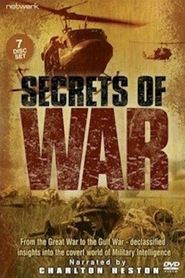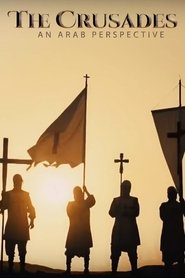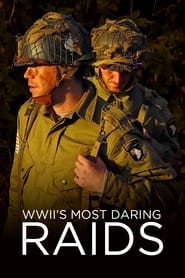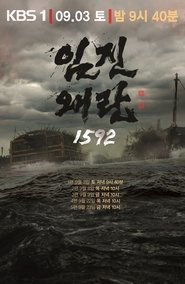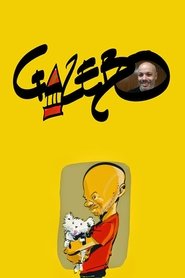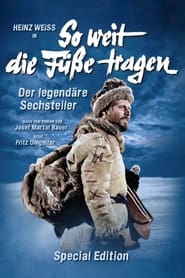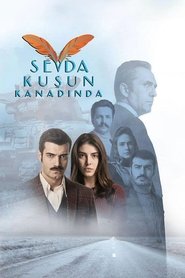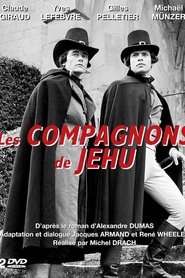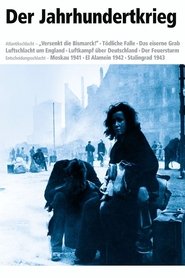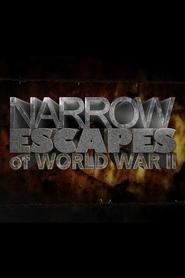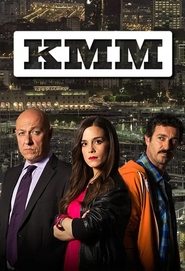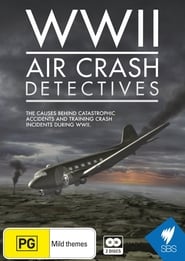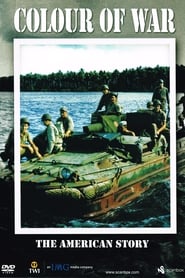Top Rated War Politics TV Series - Page 74
-
Sworn to Secrecy: Secrets of War
1998
star 6Secrets are divulged and stories of espionage, conspiracy, murder, sabotage and greed are uncovered. -
Conexão Repórter
2010
Conexão Repórter
2010
star 6The proposal of the Conexão Repórter program is the quest for truth through great reporting. Its characteristic is modernity and its scenery is futuristic. Several topics are covered with unprecedented revelations, investigative reporting and the courage to delve deeper into the issues. Roberto Cabrini, as well as editor-in-chief, also makes the great reports, trying to take the exclusive information that no one has been able to get. The news, today, travels through increasingly fast connections. This was the name of the program, in addition to the word "reporter", which was used to highlight the format and mood of the presenter. The team consists primarily of producer-reporters who actively participate in the daring project, and the opportunity to be part of such a bold program. -
The Crusades, An Arab Perspective
2016
star 9The Crusades: An Arab Perspective is a four-part series produced by Al Jazeera English, which presents the dramatic story of the medieval religious war through Arab eyes. The series provides a new perspective on the history of the Crusades for a global, English-speaking audience, that has largely read about or studied the famous struggle from a primarily Christian and Western point of view. -
WWII's Most Daring Raids
2016
star 10They were U.S. paratroopers, Norwegian operatives, and British Commandos, Allied teams leading high-risk operations throughout Europe, Africa, and Asia to fight Hitler and turn the tide of the war. WWII's Most Daring Raids puts you in the heart of the action, giving you a minute-by-minute account of the most astonishing surprise attacks against the Third Reich. We forensically examine how exactly these assaults played out, through expert analysis and testimonies from the brave men who carried them out. -
Imjin War 1592
2016
-
World War I: The Complete Story
1964
star 8One of the most comprehensive World War 1 documentary series ever made recalls the causes conduct, and aftermath of "The War to End All Wars". Along with the social, political, and economic fabric of the times, the roles of key figures are analyzed in depth. Produced during the Golden Age of CBS TV documentaries, this series, narrated by Robert Ryan, contains some of the highest quality World War 1 footage known to exist. -
Gazebo
2013
-
As Far as My Feet Will Carry Me
1959
star 7A prisoner of war is sentenced to 25 years in the Soviet Union. His escape from the Soviet gulag takes him through the intense and hopeless terrain of Siberia. -
Tutur Tinular
1997
Tutur Tinular
1997
star 10Tutur Tinular is an Indonesian historical-drama TV series, produced by Genta Buana Pitaloka (now Genta Buana Paramita. It was first aired on ANTV in October 25,1997 (Season 1) and Indosiar in 1999 (Season 2). -
Singgasana Brama Kumbara
1995
star 10Singgasana Brama Kumbara is an Indonesian historical-drama TV series, produced by PT. Menara Gading Citra Perkasa (now Genta Buana Paramita). It was aired on ANTV in April 2,1995. -
Misteri Gunung Merapi
1998
star 10Misteri Gunung Merapi (Mystery of Mount Merapi) is an Indonesian historical-drama TV series, produced by Genta Buana Pitaloka (now Genta Buana Paramita). It was first aired on Indosiar in February 7, 1999. -
Der Jahrhundertkrieg
2002
-
Svenska hemligheter
2010
-
Alexander Garden
2006
-
WWII Air Crash Detectives
2014
star 2.5Garth Barnard has a lifelong passion and unshakeable resolve to investigate how thousands of young Airmen from the Second World War died in catastrophic air accidents and training crashes. -
The Perilous Fight: America's World War II in Color
2003
star 10This four-hour series narrated by Martin Sheen captures America's wartime experience through original color film footage and compelling passages from diaries and letters. Rare color footage-much of it never before publicly screened-presents a vivid and intimate portrait of life on the battlefield and on the U.S. home front.
 Netflix
Netflix
 Amazon Prime Video
Amazon Prime Video
 Apple iTunes
Apple iTunes
 Apple TV Plus
Apple TV Plus
 Disney Plus
Disney Plus
 Google Play Movies
Google Play Movies
 Paramount Plus
Paramount Plus
 Hulu
Hulu
 HBO Max
HBO Max
 YouTube
YouTube
 fuboTV
fuboTV
 Peacock
Peacock
 Peacock Premium
Peacock Premium
 Amazon Video
Amazon Video
 The Roku Channel
The Roku Channel
 AMC+
AMC+
 Kocowa
Kocowa
 Hoopla
Hoopla
 The CW
The CW
 Vudu
Vudu
 Starz
Starz
 Showtime
Showtime
 PBS
PBS
 Pantaflix
Pantaflix
 FXNow
FXNow
 Tubi TV
Tubi TV
 Kanopy
Kanopy
 Comedy Central
Comedy Central
 Crunchyroll
Crunchyroll
 Microsoft Store
Microsoft Store
 Redbox
Redbox
 Sun Nxt
Sun Nxt
 ABC
ABC
 DIRECTV
DIRECTV
 Crackle
Crackle
 Fandor
Fandor
 Plex
Plex
